As the Kurdistan Region has announced its intentions to hold a referendum this year, the Kurdish Lobby Australia (KLA) published a 16-point report summarizing the inherent right to self-determination the Kurds have, in addition to the other benefits such a move would entail.
“The Kurds have their own history, culture and language,” the recently published report asserts. “They are among the original inhabitants of the region they occupy and number up to 50 million people.”
The report cites proposed and defined borders for a Greater Kurdistan by the Paris Peace Conference in 1919, Treaty of Sevres in 1920, and Kurdish delegation at the first United Nations Conference in 1945 — with the latter being the most liberal. The previously proposed borders for a Greater Kurdistan stretch from southern Georgia and Armenia in the north, to the Mediterranean Sea in the west, south to Iraq’s Diyala province, and about 200 kilometers into Iran.
However international organizations have failed to deliver any sustained Kurdish state. The international order defaults back to post-World War II order of statehood — with a few exceptions — and at various times the governments in Baghdad, Tehran, Damascus, Ankara and Istanbul have opposed such Kurdish aspirations.
Self-rule for Kurds has been most successfully internationally recognized in the 21st century within the Kurdistan Region. April 9th is Liberation Day in the Kurdistan Region, commemorating the fall of the brutal dictator Saddam Hussein. Fourteen years later in the Kurdistan Region, there are consulate generals from 21 nations, and 14 other various forms of national representations with more opening or planning to.
The Kurdistan Region has reciprocated that interest with the establishment of 14 representation offices abroad, as Kurds have recalled in memoires of their meetings with foreign leaders used to take place in coffee shops across the street from places like the US State Department. Now, officials from the Kurdistan Regional Government are warmly and openly received by the highest officials in many countries.
Still the fight for self-determination has taken different forms, and insurgencies against governments aren’t always immediately helpful to the Kurdish cause.
“These countries diverted considerable resources into fighting and oppressing Kurds, leaving Kurds without basic rights and their regions without essential infrastructure and services,” KLA wrote. “Resolving the status of Kurds will allow each country to develop politically and spend resources on economic and social development.”
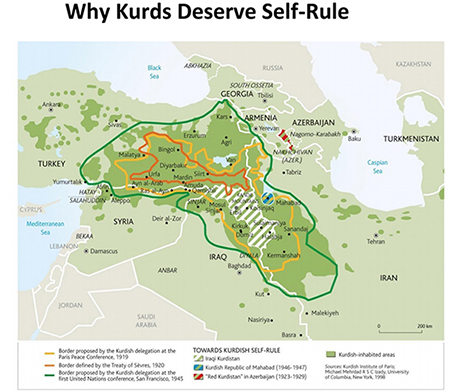
One of the Kurdistan Region’s greatest strengths in the eyes of the international community has been its willingness to embrace diversity.
“Supporting self-rule for Kurds would require supporting self rule or inclusive, truly representative and impartial governance for all people in Iraq, Syria, Turkey and Iran thus benefitting Arabs, Turks, Persians, Assyrians and others,” the report stated, highlighting the benefits to other nations of regions who can accommodate internally-displaced person and refugees.
Additional practical reasons exist for the international community to support “islands of influence.”
“Whether or not current borders are maintained, support for local and regional administrations that demonstrate a relatively high level of security, pluralism, institution building and public services creates ‘islands of influence’, even while they need support to improve accountability, the rule of law and an alternation of power,” KLA wrote.
“Expensive, short-term nation building efforts in Iraq and Afghanistan have largely failed,” it added.
Kurdish forces have proven themselves to be valuable partner forces to the international coalition to defeat ISIS in Iraq and Syria.
“Rewarding such an ally not only reassures other allies that their sacrifices will be appreciated but building military relations with Kurdish regions enhances reduces potential for future conflict,” the report stated.
The full report can be round on the Kurdish Lobby Australia website.
[This article was originally published by Rudaw. Featured Photo credits: Ahmed Selah]
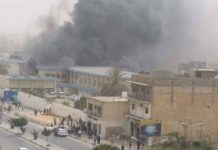
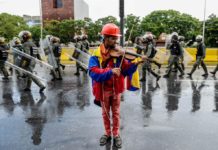
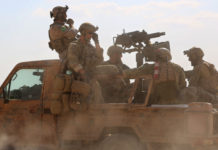
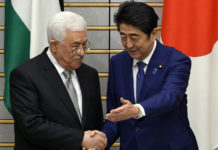
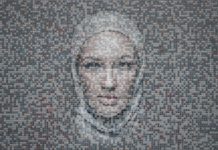
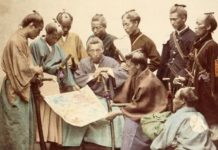
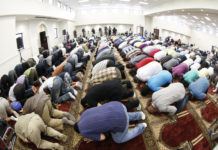
![Kurdistan-Independence-1[1]](http://meccapost.com/wp-content/uploads/2017/04/Kurdistan-Independence-11-1068x712.jpg)

